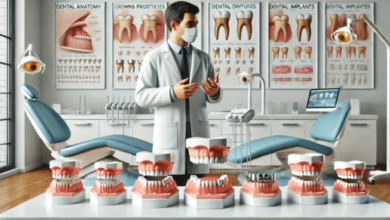A General Dentist’s Guide To Tooth Extractions

Pulling a tooth is not as scary as it sounds. That’s what we will be discussing today. This is your guide to understanding tooth extractions. We will share insights on why, when, and how tooth extractions occur. We will also talk about porcelain veneers Bronx. This guide is sure to soothe any fears you might have about the process. So, sit back, relax, and let’s delve into the world of oral health.
Why Tooth Extractions?
Tooth extractions are a common dental procedure. They are typically done when a tooth is causing pain or health problems. These can be due to decay, disease, or trauma. It’s also common when a tooth is crowded or at risk of infection.
When To Extract A Tooth?
There are a few signs to look for. These can include severe pain, swelling, or sensitivity. If you have any of these symptoms, it’s crucial to see your dentist right away. They can decide if an extraction is the best course of action.
How Do Tooth Extractions Occur?
First, your dentist will numb the area. This ensures the process is as comfortable as possible. Then, they will loosen the tooth using a special tool. Finally, the tooth is gently removed.
The Role of Porcelain Veneers
For some, porcelain veneers are an option after extraction. These veneers are a great way to restore your smile. They look just like your natural teeth and can last for years with proper care.
Recovery After Tooth Extraction
Recovering from a tooth extraction is usually straightforward. It involves rest, pain management, and careful oral hygiene. You should also avoid hard or spicy foods, smoking, and drinking through a straw.
Comparison of Tooth Extraction and Other Dental Procedures
| Procedure | Purpose | Recovery Time |
| Extraction | Remove problematic tooth | 2-7 days |
| Veneer placement | Improve appearance of tooth | Non-surgical, minimal recovery |
| Root canal | Treat infected tooth pulp | 2-3 days |
In conclusion, tooth extractions are a standard procedure in dentistry. If you’re experiencing dental pain or discomfort, it’s important to see your dentist. They can help you determine the right course of action for your oral health.




